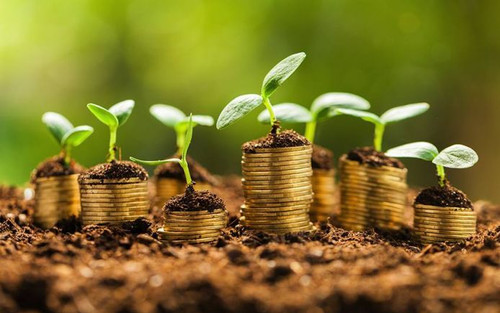When it Sounds Like Greenwashing...Ask Questions
Posted on Nov 11th 2020
When it Sounds Like Greenwashing...Ask Questions
We believe almost every person and company who pursues sustainability is trying to do the right thing. We also know that many companies are battling cost management with their desire to make more eco-friendly choices, so even though their choices may not go as far as some of us would like, they are doing what they can within their budget. So with that in mind, we try not to use the term "greenwashing" to describe the actions of a brand, a manufacturer, or a packaging provider.
But, we have been on many discovery calls with inventors and manufacturers of new materials and packaging solutions. Often, in these calls, phrases are tossed around that put me on high alert. These phrases tell me to ask harder questions and remember our rigorous sustainable packaging framework, so I don't inadvertently buy into a packaging solution that doesn't meet my standards.
In this blog post, I share a few such phrases I often hear, on the hope that it can help you become even more discerning as your business pursues more sustainable packaging and business operations.
This [INSERT ITEM HERE] is Recyclable: We love recyclability here at EcoEnclose. Despite its current limitations, recycling an item is still the preferred and most sustainable end of life scenario for almost all materials. However, we often see a package or company claiming high levels of sustainability, but then find that the only eco characteristic of their product or packaging is "recyclability." This feels and smells a little like Greenwashing when I see it happen. I would argue that being "Recyclable" is just table stakes at this point. It should be the norm that every single shipped order should be in recyclable packaging, and anyone trying to prop recyclability up as an immense differentiator is setting themselves up for some criticism and skepticism.
Biodegradable Plastic: If biodegradability is important to you, your best bet is to choose a naturally biodegradable option that is also curbside recyclable - like paper. But if you find yourself looking at biodegradable plastic options - it is so important to ask hard questions about the material you are considering, to make sure it truly meets your sustainability goals and you're not inadvertently making problematic choices for the planet.
If you are looking for biodegradable plastic, you may be looking for something your customers can compost. If that is the case, you need to find certified composable (for either industrial and/or home composts) options. These are typically made with PLA+PBAT or cellulose. If you ask about a company's compostability certifications and they share back with you ASTM standards, listen for ASTM D6400 (industrial composting standards). There are a lot of other ASTM standards such as ASTM D5511, that refer to biodegradability, but are not enough to allow an item to be composted. If you are looking for home compostable goods, ASTM does not have relevant standards but Europe and Australia both have standards (such as Australian AS 5810) and you should look for your packaging to meet these.
Up to X% Recycled Content: When you see "up to X% recycled plastic" it often means that a manufacturer is using only post industrial waste, and that they are only incorporating the scraps they have on hand when running. They likely have determined that they are comfortable using up to a certain amount of these scraps, and then slap this "up to" label on their products. Post industrial waste is not a bad thing! But it certainly isn't nearly as beneficial for sustainability and waste management as post-consumer waste. In fact, most manufacturers would use some post industrial waste anyway, as a cost savings measure, so your purchasing from them isn't pushing for any ecological advancements in their manufacturing line. Additionally, "up to" means that you can never make a true and transparent claim as to the amount of recycled content in your packaging!
This [INSERT ITEM HERE] disappears and/or becomes fertilizer for your garden: Yikes! There is this myth that many cling to that when a package composts or gets dissolved down a drain, it "disappears" leaving absolutely no impact behind on the planet. There is an even worse home that any time something composts, it leaves behind rich humus that is great for soil. These are untrue statements and if you hear a manufacturer make these claims, push further. Ask, "do you have studies that show what is left behind in the soil or water?" Ask "what happens if all plastic was converted into this material" What impact would that have on our soil, composting infrastructure, etc?"
We have written at length about the fact that even if an item passes a compostability standard, it does not mean that it is great for compost. Bioplastics add unwanted moisture, heavy metals and other contaminants to compost, without adding any good nutrients. Composters that accept bioplastics are left with soil that cannot be used as agricultural amendments. When you imagine all plastic being converted to compostable plastic, you realize how problematic this becomes, with composters up to their ears in material that is technically compostable, but degrades the quality of their output and leads to these contaminants seeping into our soils and water ways.
This doesn't mean that compostable plastic is necessarily a bad thing. But it does mean you should push back hard on anyone who claims that your compostable plastic bag will be "worm food."


